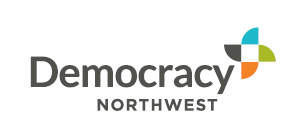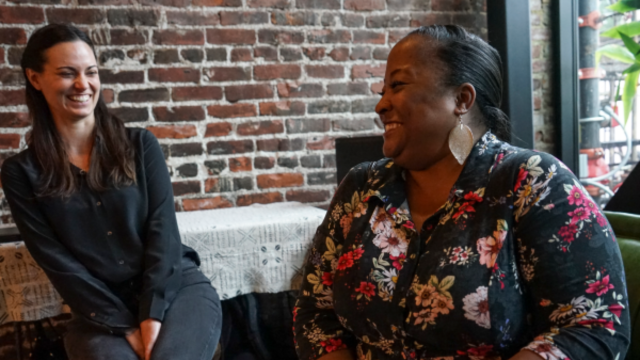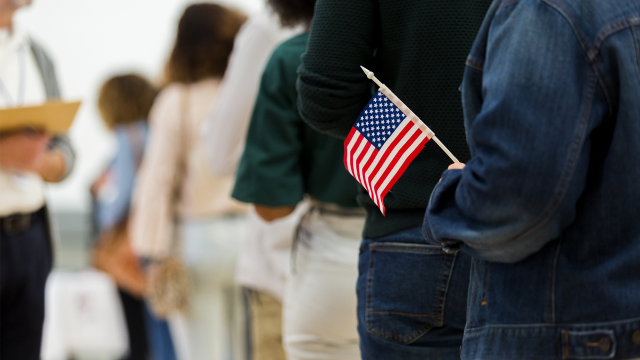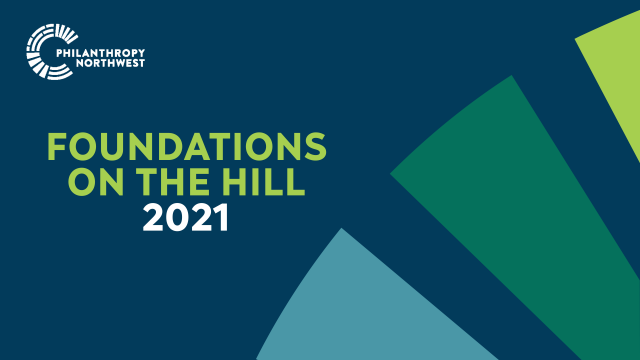The beginning of January always signals a mad rush of advocacy alerts to my inbox and phone. As a former lobbyist, I recall the junior high-like atmosphere of reconnecting with your friends and frenemies during the first few days of the legislative session, refreshed from the time away and ready to consider new alliances; I imagine it’s the same in Washington, D.C. as it is across our Northwest state capitols.
This January, however, is like no other. An unprecedented presidential election outcome, followed by continued confusion and rancor, has increased public appetite for activism. The speed in which these debates are happening — in person and online, 24 hours a day — requires immediate and intensive focus.
The scope and depth of legislation in state capitols across our region and Washington, D.C. will shape the nature of our communities for decades to come. Many legislatures are developing multi-year budgets, debating about massive investments in education, and in many cases, fearfully preparing to respond to immense disinvestment from the federal government. Fewer Americans are voting or otherwise civically engaged; trust in public institutions are at all-time low.
In discussions with Philanthropy Northwest members, it’s clear that a desire exists to raise our voice through advocacy and to act to reinvigorate our democracy. Philanthropy must be involved in the short-term work of shaping policy change and the long-term work of rebuilding the institutions we use to advance the common good.
Shaping Policy through Advocacy
For foundations, entering the realm of advocacy is often taken with too much trepidation. Issue advocacy should not be confused with politics.
Certainly, like the larger public, the machinations of shaping public policy is conflated with the messiness of politics. However, advocacy can be the most effective strategy in philanthropy's toolbox — and an entirely legal one (within limits). Silence on major policy issues can be perceived as acquiescence.
While philanthropic dollars are important in every community, they pale in comparison to the breadth of public resources. When I lobbied for the United Way of King County and the Jewish Federation of Greater Seattle, it was often said that I held the largest major donor card. This was true, and just like a major donor, I had to work hard to cultivate the relationship with policymakers. But part of that relationship includes debunking assumptions about the ability of philanthropy to swoop in to backfill where the government had retreated (or was looking to retreat) on support for all types of public services.
In Congress and our state capitols, policymakers are considering ideas that have the potential to upend the philanthropy-government balance. Philanthropy can use their voice through advocacy, or by supporting grantees, to ensure policymaking remains equitable, inclusive, thoughtful and community-focused.
Rebuilding Democracy
In the short term, philanthropy needs to advocate on behalf of our missions, grantees and communities. In the long-term, because philanthropy holds a privileged tax status in our country, our sector also has a paramount obligation to protect democracy.
While some polling seems to indicate the public still holds the philanthropic sector in high regard, I would be extremely cautious in holding onto that finding. The anger that many Americans are projecting on large institutions is bound to have an impact on major foundations, too. Americans perceive "elites" as dominating decision-making in our country. And, as a privileged space, philanthropy has an obligation to work to rebuild trust in democracy. To do so, part of the work must be for to democratize our practices.
A recent piece by Dorian O. Burton & Brian C.B. Barnes suggests that the “gap of authentic empathy and justice more pronounced than in the American philanthropic sector, where often well-intentioned people make decisions for communities they do not come from, may not understand, rarely interact with, and almost never step foot into.” Their charge is to shift philanthropy from a charitable framework to one of justice. In fact, in some faith traditions, charity is an obligation that is an act of justice and righteousness. Burton and Barnes suggest a series of questions for philanthropists promoting greater levels of local civic engagement, leadership development, and collaboration.
President Obama’s farewell address on Tuesday reinforced every American’s obligation to rebuild our democracy:
"It falls to each of us to be those anxious, jealous guardians of our democracy; to embrace the joyous task we’ve been given to continually try to improve this great nation of ours. Because for all our outward differences, we all share the same proud title: Citizen.
Ultimately, that’s what our democracy demands. It needs you. Not just when there’s an election, not just when your own narrow interest is at stake, but over the full span of a lifetime. If you’re tired of arguing with strangers on the internet, try to talk with one in real life. If something needs fixing, lace up your shoes and do some organizing. If you’re disappointed by your elected officials, grab a clipboard, get some signatures, and run for office yourself. Show up. Dive in. Persevere."
 Where to Begin?
Where to Begin?
In my role at Philanthropy Northwest, I’m excited to continue my work with members working to strengthen our democracy and raising your advocacy voice. If you're interested in joining me, here are some resources and upcoming opportunities to engage:
- January 24: Advocacy in a New Administration: A Workshop for Funders
- January 24: Democracy Northwest: Raising Philanthropy's Voice
- March 20-22: Foundations on the Hill 2017
- Digital Resource Center: Advocacy
- Public Policy at Philanthropy Northwest
Remy Trupin is a Philanthropy Northwest Catalyst Fellow, focused on advocacy. He can be reached at rtrupin@philanthropynw.org.


